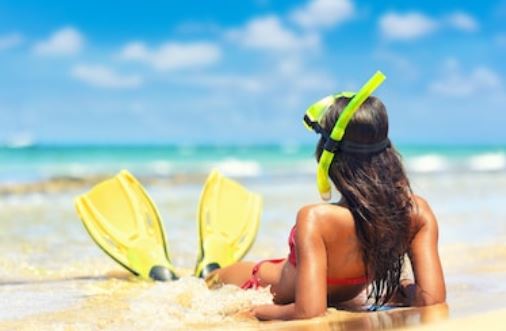Fort Lauderdale Sightseeing Cruise
See Ft. Lauderdale in all it's glory!
Useful Snorkeling Tips for Beginners
Snorkeling is a cheap and fun way to explore the beautiful underwater scenery. It’s an exciting activity that can be done by anybody and doesn’t require much experience or expensive gear. All you need is to invest in a quality snorkel, mask, fins and have basic swimming skills to enjoy snorkeling. In this article, we have listed a few tips to help have an enjoyable snorkeling experience if you’re a beginner.
PRACTICE FIRST
After you have purchased new snorkeling or rented one, it’s time to practice with it in somewhere calm and safe before leaving for the sea. Practicing will give you an opportunity to practice wearing your mask, determining the perfect tightness for the head strap, determine the best snorkel position and practice putting on your fins on and taking them off. When you do all these things, it will help you increase your confidence when you head to the sea.
The best place to practice with your gear is your swimming pool as it’s controlled and confined. There are also no waves in swimming pools to knock you off balance while you’re wearing your fins and the pool’s side is not too far away if you feel that you need to grab it. If there is no swimming pool nearby, you can practice in shallow, well-protected beach.
Do not just jump into the water. Take time to get used to water by putting your head under water first to get used to breathing underwater and via your snorkel. While your head is in the water, check your mask to ensure it’s not leaking, the head strap is firm and comfortable and you can really clear water from your snorkel tube by exhaling hard. You can get good advice about equipment at a diving equipment website like getsnorkelmask.com.
Once you’re comfortable with breathing underwater, you can jump into the water and practice fining around it. Try as much as possible to keep your lower limbs straight and make use of your leg muscles to kick up and down instead of bending at the knee joint which tends to produce a lot more splashing and far less thrust. Use controlled, calm kicks to move gently around the water.
KNOW YOUR LIMITS
When snorkeling, never go beyond your limits or what you feel safe and comfortable doing. If you’re happier just floating around the shallow waters rather than snorkeling into deeper water, then there’s absolutely nothing wrong with that. You will probably discover that as you get more experienced, you’ll naturally try new experiences. Always remember to remain safe.
CHOOSE A GOOD SPOT
Take your time to research your first location for snorkeling. Choose a calm, relaxed place to help increase your confidence. Snorkeling in a beach is much safer for a beginner than snorkeling from a boat into deep waters as jumping off a boat into deep waters can be quite terrifying for a beginner. So pick a really interesting beach that you know has plenty of marine life. Also, try and choose a snorkeling spot that is well protected from big water waves that can make snorkeling more difficult.
Once you’ve gained some confidence and experience in the use of your snorkeling equipment, you can now begin to try out some more adventurous excursions and spots.
BE AWARE OF THE SEA CONDITIONS
Do not forget to keep an eye what’s happening around you. The sea or ocean is full of tidal flows and currents that can move you very fast. Remember to take note of your entry point and possible safe exit points. If you begin to drift away from safe waters, do not panic but try to swim back to exit safely from the water. Remember to never snorkel alone and make sure there is someone that knows you’re out snorkeling.
PROTECT YOURSELF
